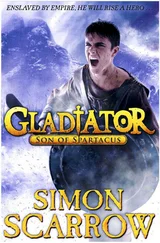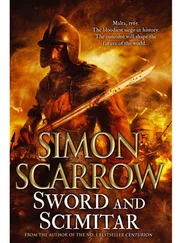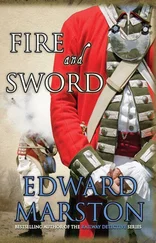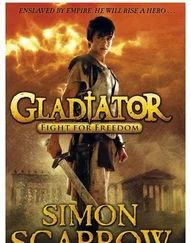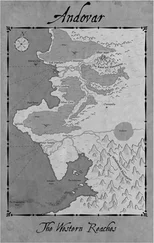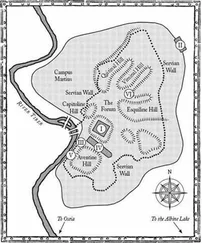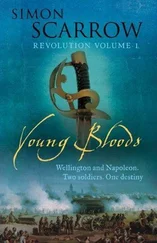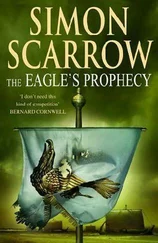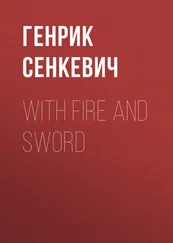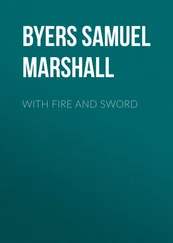‘General Wellesley, is it not?’
‘Yes, sire.’ Arthur bowed.
‘We are pleased that you have attended the levee, Sir Arthur. We are even more pleased that you have proved to the world that the armies of France are not invincible. Your country is grateful to you.’ The King paused and smiled. ‘At least, your country should be grateful, and they will be in due course, I have no doubt.’
‘I thank your majesty.’
The King moved on.When he was out of earshot, Arthur muttered to his brother,‘It seems that at least one person approves of my actions.’
On the dais, the King coughed to clear his throat and addressed the chamber. ‘Before the morning’s entertainment begins I would like to take the chance to offer my profound thanks to the officers of the Navy and the army who are present here tonight. Our nation stands in an hour of great peril, and sometimes our people forget to show due deference and respect to those who risk their lives for their King and country. To which end I trust that those of us who are not in the services will join me in applauding our brave soldiers and sailors.’
He gently clapped his hands together and instantly the chamber was filled with the sound of applause. Arthur nodded his thanks to those on either side of him, as did the other guests who were in the services.
As the King folded his hands his guests quickly ceased their applause and the royal chamberlain nodded a signal to the small orchestra in the gallery.At once they struck up with a light piece of music and the guests slowly began to mill together, talking in an animated hubbub, as those who were to be presented to the King formed a loose queue to one side of the dais.
Arthur and William began to work their way through the guests, greeting old friends and acquaintances. Arthur was saddened by the coolness they met from many of those he had once counted as friends and political allies.
‘What did you expect?’ asked William. ‘Richard is still waiting to be cleared of the accusations made against him from his time in India.You are about to go before a court of inquiry whose report may damn your political and military careers for ever.Who would want to be associated with a family like that? Failure and shame are contagious.’
‘Sir Arthur! My dear fellow!’
The brothers looked round to see Castlereagh striding through the crowds towards them with a broad smile on his face. Arthur turned to William and cocked an eyebrow. It seems that we are not completely abandoned.’
‘Not yet,’William muttered sourly.
Castlereagh took their hands in turn and pumped them vigorously. ‘A bad business, this hue and cry over the Cintra treaty. But I am sure it will die away once the inquiry makes its report.’
‘I hope so,’ Arthur responded evenly.
‘Speaking of which,’ Castlereagh looked at Arthur with a mischievous twinkle in his eye, ‘there is someone I think I should introduce you to. Do come with me.’
He took Arthur’s arm and guided him through the crowd towards Charles Franks and his small entourage, who watched their approach with dismay.
Castlereagh waved his hand. ‘Charles! Good to see you here.There’s someone I would like you to meet.’ Arthur’s gaze met that of Charles Franks, and the men stared at each other frostily until Castlereagh continued in an ebullient tone, ‘I don’t think you have ever formally been introduced to Sir Arthur Wellesley, have you?’
‘No, I have not . . .’ Franks attempted to smile politely, but the tension between the dictates of good manners and the knowledge that he was hoping to petition the King to destroy Arthur tied the politician’s tongue.
‘Not what?’ Castlereagh prompted. ‘Not had the pleasure?’
‘Yes. That’s what I meant.’ Charles Franks smiled weakly.
‘Of course that’s what you meant. Now then, it is my pleasure to introduce you to Lieutenant-General Sir Arthur Wellesley, the hero of Vimeiro.’ He paused and repeated the words with heavy emphasis. ‘The hero of Vimeiro. Has a nice ring to it, wouldn’t you say?’
‘I suppose so,’ Franks replied uncomfortably, his eyes flickering towards Arthur. ‘I congratulate you on your victory, Sir Arthur. However, it is a shame that so signal an achievement should be followed by so shameful a sequel.’
‘That is a matter of opinion,’ Arthur replied flatly.
‘Yes. But I imagine you are just as keen to cast the blame on to Dalrymple and Burrard as they are to cast it on you.’
Arthur shook his head. ‘I keep my opinions to myself. On matters relating to events that took place in Portugal, I reserve my words for the inquiry, which is the proper arena for such comments, as I am sure you would agree?’
‘I suppose so, yes.’
Castlereagh clapped both men on the shoulder. ‘Good! That’s how these things should be done, eh?’
Charles Franks smiled weakly at the Foreign Secretary and then bowed his head. ‘It has been a pleasure to meet you, Sir Arthur, but my friends and I must leave early.We have another engagement, so I bid you good day.’
His friends looked at each other in surprise before they echoed their farewells and the little band made its way through the crowd towards the entrance to the audience chamber. As he watched them depart, Castlereagh muttered,‘So much for their petition. I don’t think it would have had much chance of support in Parliament. Still less now it is seen that his majesty evidently favours you.’
‘Quite.’ Arthur nodded, then turned to the minister. ‘However, I still have to go before the inquiry.’
‘Of course. But I am sure the panel will be persuaded that you cannot be held responsible for the Cintra treaty. Solely responsible, that is. Either all three generals will be condemned or none will.’ Castlereagh shook his hand again. ‘Good luck, Sir Arthur. And goodbye to you, William.’ He turned and strode away to work another section of the crowd.
‘Either all three condemned, or none,’ William echoed. ‘Was that supposed to be a few words of encouragement, do you think?’

Chapter 51
Arthur was wearing his best uniform when he presented himself before the members of the panel. Sir David Dundas had been appointed president of the inquiry and was assisted by six other generals, all of whom were now seated behind a long table at the end of the Great Hall. Several clerks and secretaries sat at small tables in the wings, organising documents and taking down details of what was said to provide an accurate record of the event. Arthur was shown into the hall and escorted to the single chair set before the inquiry panel. He bowed to each of the members and then took his seat. Dundas was an elderly general and one of the most senior in the army. His gaunt figure topped by a thin face, a long nose and white hair. Dundas had a reputation for being a strict disciplinarian and a stickler for rules and regulations.
‘Sir Arthur,’ he began formally,‘you have been called here to account for your actions in relation to the treaty signed at Cintra. Generals Dalrymple and Burrard have already given their evidence. You will answer all questions truthfully and to the best of your knowledge. Do you understand?’
‘Yes, sir.’
‘Very well then. It is the understanding of this inquiry that you were in command of the army for the duration of the engagement at Vimeiro. Is that so?’
‘Yes, sir.’
‘And yet General Burrard had reached the vicinity of the army the day before.’
‘Yes, sir.’
‘So, in your view, it would have been possible for Burrard to have assumed command of the army in time to fight the subsequent battle.’
Читать дальше


